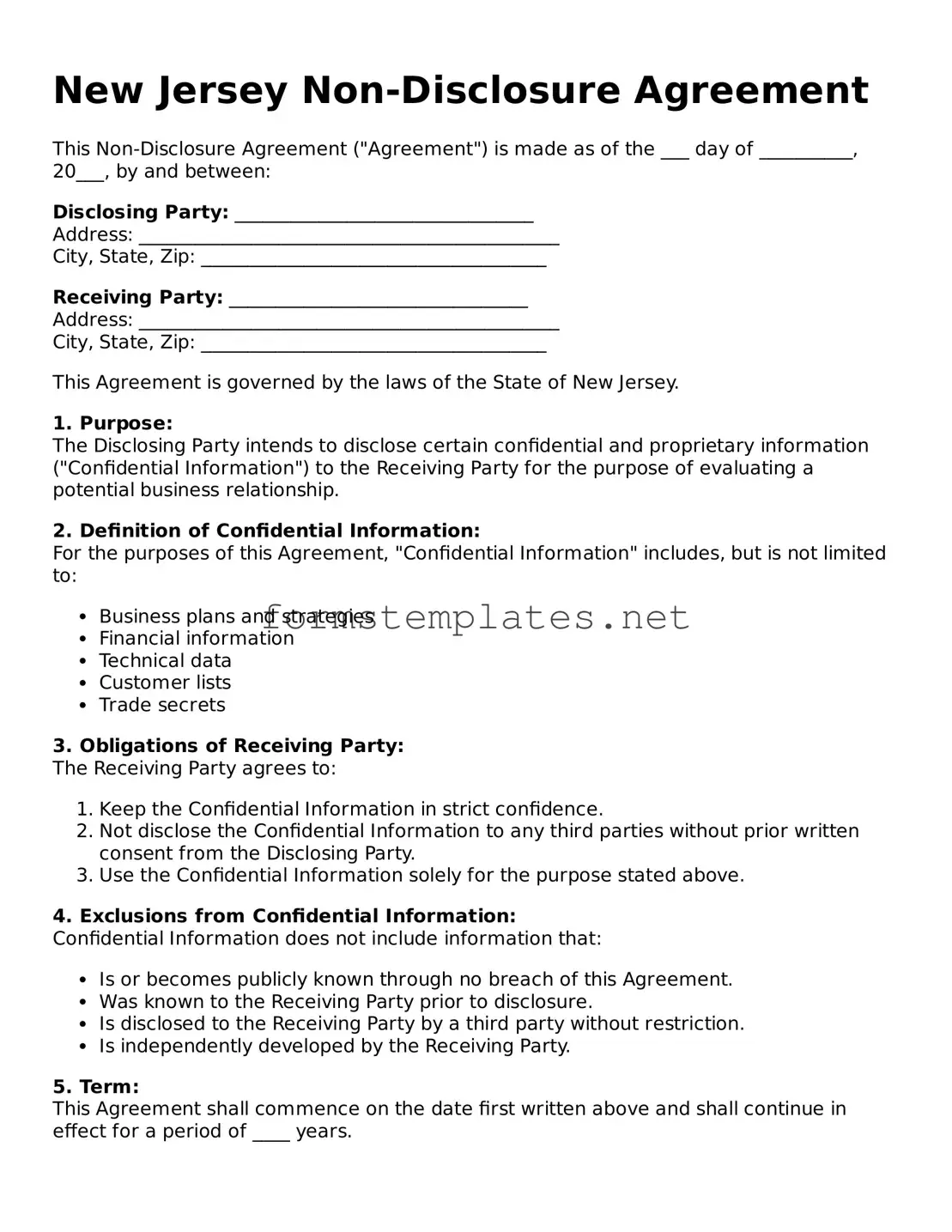Attorney-Approved New Jersey Non-disclosure Agreement Template
A Non-disclosure Agreement (NDA) in New Jersey is a legal contract designed to protect confidential information shared between parties. This form establishes the terms under which sensitive information can be disclosed and ensures that it remains secure. Understanding the specifics of this agreement is crucial for individuals and businesses looking to safeguard their proprietary information.
Open Editor Now

Attorney-Approved New Jersey Non-disclosure Agreement Template
Open Editor Now

Open Editor Now
or
⇓ PDF Form
Your form still needs attention
Finalize Non-disclosure Agreement online — simple edits, saving, and download.